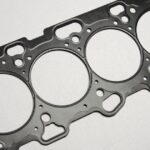It is a decision that requires careful consideration. While the idea of a high-mileage car might raise concerns, it could also present an opportunity for a budget friendly purchase. We will discuss into the pros and cons of buying a car with such mileage.
By understanding the factors at play, you’ll be better equipped to make an informed decision that suits your needs and preferences. So, let’s weigh the options and unravel the mysteries of whether a car with 200,000 miles is worth it.
Before you make a decision, let’s find the world of high mileage cars. In this article, we will discuss the good and not so good aspects of buying a car with 200,000 miles. So, let’s find in and learn more about what to expect from these well worn wheels.
What counts as a high mileage?
- High mileage varies: Depending on a vehicle’s age, make, and model.
- Threshold: Generally, cars with over 200,000 miles are considered high mileage.
- Modern durability: Newer cars are built to last longer, blurring the line of what’s considered high mileage.
- Maintenance is key: Mileage alone doesn’t define a car’s condition; proper upkeep matters.
- Consider various factors: Review the car’s history and maintenance records to assess its true condition.
- Relative concept: High mileage is subjective and varies based on individual circumstances.
Is it a fair idea to buy a car with 200,000 miles?
Is buying a car with 200,000 miles a smart move? It depends on various factors. While the price might be appealing, consider the potential maintenance costs. Additionally, examine the vehicle’s maintenance history and overall condition. Ultimately, make an informed decision based on your needs and budget.
What steps should you take before buying a high-mileage car?

- Test drive: Take the car for a test drive to gauge its performance and handling, paying attention to any unusual sounds or vibrations.
- Research market value: Determine the fair market value of the car based on its make, model, year, and mileage to ensure you’re getting a good deal.
- Consider future maintenance: Anticipate potential future maintenance costs based on the vehicle’s age and mileage, and factor them into your decision.
- Negotiate price: Use your findings from inspections and research to negotiate a fair price with the seller, taking into account any necessary repairs or maintenance.
- Review warranty options: Explore warranty options to protect yourself against unexpected repair costs after purchasing the high-mileage car.
- Check for recalls: Verify if any recalls or safety issues exist for the specific make and model of the car you’re considering, and address them if needed.
- Consult with a trusted advisor: Seek advice from friends, family, or automotive experts who can offer insights and guidance on your potential purchase.
What are the preventive measures?
Preventive measures before purchasing a high-mileage car are essential for making a smart decision. Start by checking the car’s maintenance records to ensure it is been well cared for. Consider hiring a trusted mechanic to perform a thorough inspection, uncovering any potential issues.
Obtain a vehicle history report to learn about the car’s past, including accidents and ownership history. Evaluate the overall condition of the car, looking beyond just the mileage. Lastly, take it for a test drive to assess its performance firsthand. These steps will help you make an informed decision and avoid any surprises down the road.
Read This Blog: Why Does My Car Horn Sound Weak? Causes, Solutions, and Costs:
How to choose a pre-owned car?
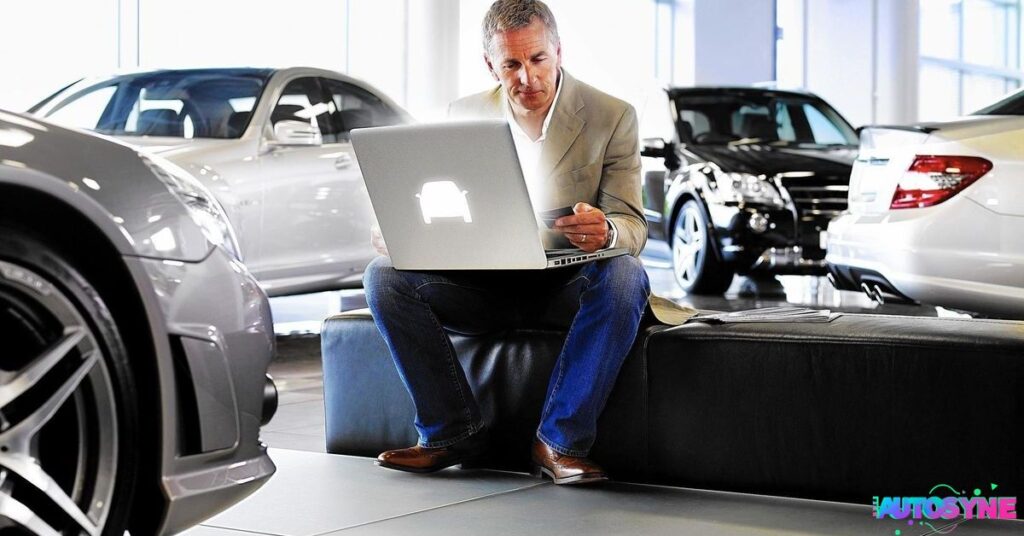
Choosing a used car might seem hard, but it’s not if you follow some simple steps. First, figure out how much money you can spend on the car and how much you’ll need for things like insurance and repairs.
Then, look up different cars to find one that’s reliable, good on gas, and safe. When you find a car you like, check it out carefully for any damage or problems. Take it for a test drive to see how it feels to drive. Also, ask for a report that tells you about the car’s past, like if it’s been in any accidents.
Various factors to be considered before your purchase
Before buying a car, consider factors like budget and transportation needs to make an informed decision.
Here are some factors:
Timing Belt and Chain
The timing belt or chain in a car’s engine helps coordinate the movement of parts. It ensures that valves open and close at the right times during engine operation. Regular maintenance is essential to prevent the belt or chain from breaking, which could cause severe engine damage.
Mechanics recommend replacing the timing belt every 60,000 to 100,000 miles to avoid potential issues. Keeping the timing belt or chain in good condition is crucial for the overall health and performance of the engine.
Maintenance Cycles
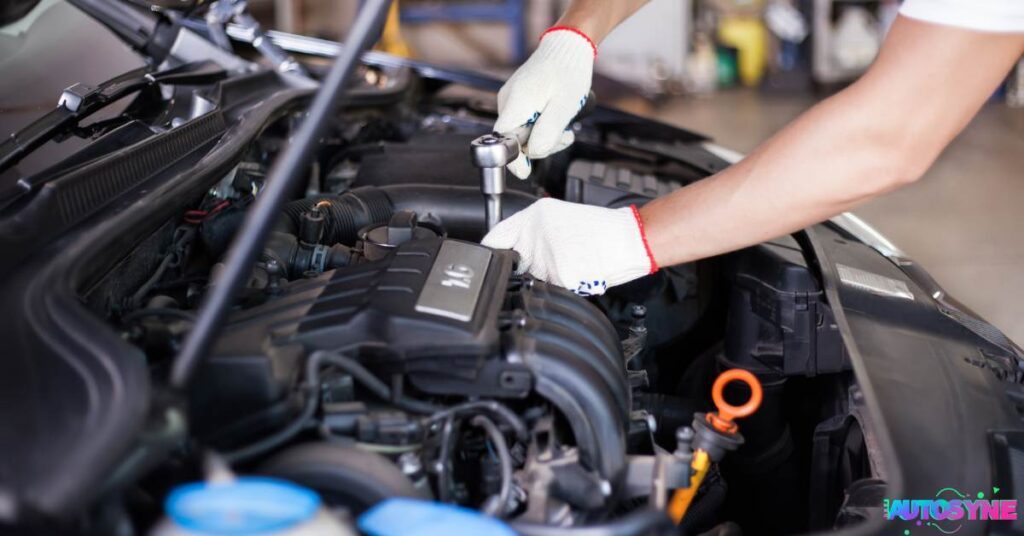
Maintenance cycles are regular check-ups and tasks needed to keep a car running well. This includes things like changing the oil, rotating the tires, and checking the brakes. Following these cycles helps prevent problems and keeps the car safe and reliable.
Make sure to stick to the schedule recommended by the manufacturer to avoid any issues. Skipping maintenance can lead to expensive repairs and make the car less reliable.
Automatic transmission
An automatic transmission is a gearbox that changes gears without needing the driver to do it manually. It’s in many modern cars and shifts gears automatically based on speed and engine load.
It is important to take care of it by changing fluids regularly to keep it working well. But if it is not maintained, it might develop problems like slipping gears or failing, which can be expensive to fix.
Brake pads
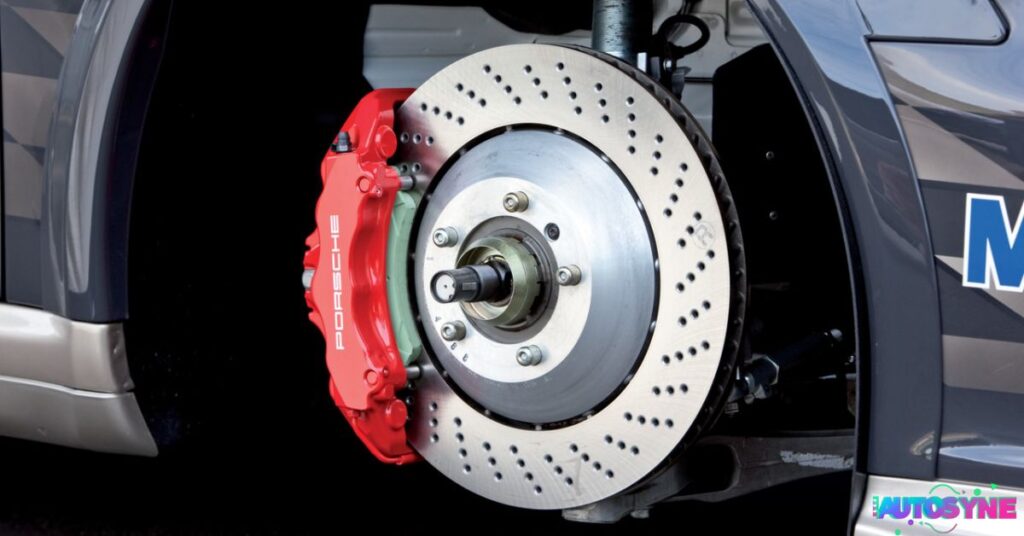
Brake pads are crucial for stopping a car when the brakes are applied. They press against the brake rotors to slow down the wheels by creating friction. Over time, brake pads wear out and need to be replaced to maintain safe braking.
It is important to check them regularly and replace them when necessary to ensure your brakes work properly.
Tires
Tires are the rubber coverings on a car’s wheels that help it move. They grip the road to provide traction and allow the vehicle to accelerate, brake, and steer effectively. Over time, tires wear down due to use and exposure to the elements, such as heat and friction.
Replacing worn or damaged tires is essential for maintaining traction and preventing accidents. Additionally, rotating tires regularly helps distribute wear evenly and extend their lifespan. Proper tire maintenance is crucial for vehicle safety and performance.
Battery
The battery is like the heart of a car’s electrical system. It helps start the engine and powers things like lights and the radio. Over time, batteries wear out and need to be replaced. Checking the battery regularly and keeping it clean can help it last longer.
Extreme temperatures can affect how well the battery works, so it’s essential to take care of it. If the battery is old or not working well, it’s best to replace it to avoid problems.
Water pump
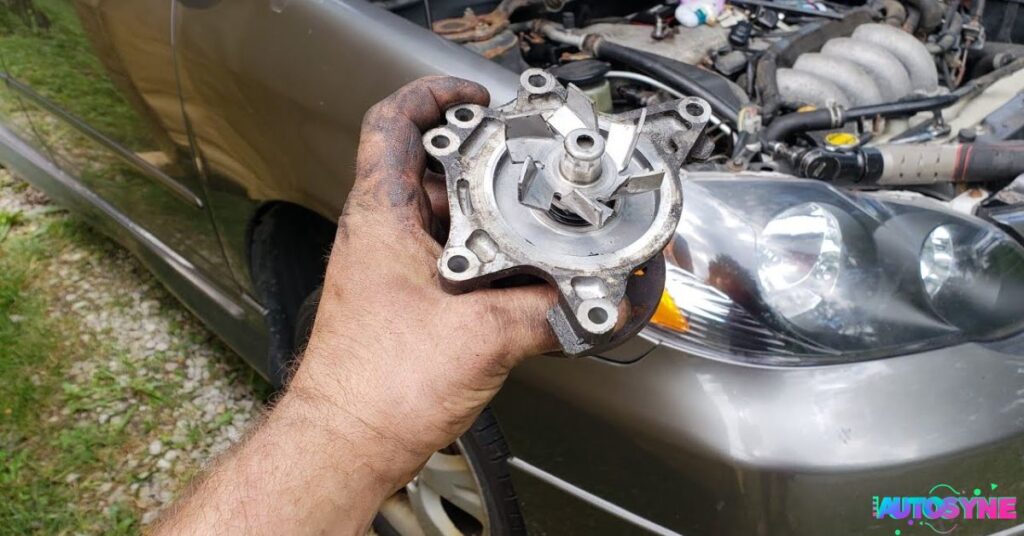
The water pump helps keep the engine cool by moving coolant around it. It’s powered by the engine and can wear out over time, causing leaks or overheating. Regular checks and maintenance can help prevent problems with the water pump. If it fails, it’s important to replace it quickly to avoid damage to the engine.
Oil changes
Oil changes are essential maintenance tasks for keeping a car’s engine running smoothly. During an oil change, old engine oil is drained and replaced with fresh, clean oil. This helps lubricate the engine’s moving parts, reduce friction, and remove dirt and debris that can accumulate over time.
Regular oil changes are necessary to prevent engine damage and maintain optimal performance. It’s important to follow the manufacturer’s recommendations for oil change intervals, which can vary based on factors such as driving habits and environmental conditions.
Also Read: Why is My Car Jerking After Oil Change?
How to extend the life of a high-mileage car?
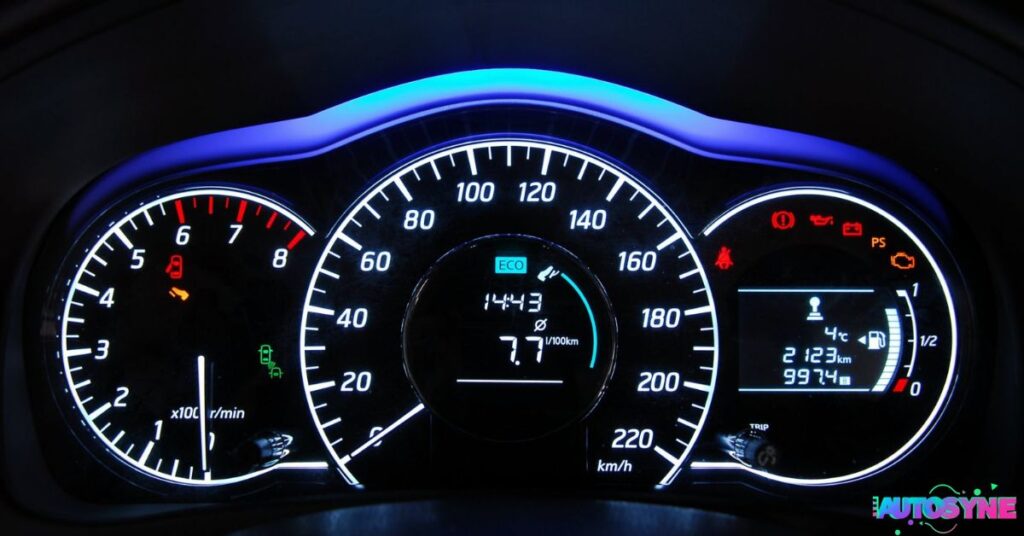
To extend the life of a high-mileage car, consider these tips:
- Regular Maintenance: Follow the manufacturer’s recommended maintenance schedule for services like oil changes, fluid checks, and tire rotations.
- Address Issues Promptly: Address any mechanical issues or warning signs promptly to prevent them from worsening and causing further damage.
- Use High-Quality Parts: When replacing parts, opt for high-quality components that meet or exceed the manufacturer’s specifications.
- Drive Sensibly: Avoid aggressive driving behaviors such as rapid acceleration, hard braking, and high-speed driving, which can accelerate wear and tear on the car’s components.
- Keep It Clean: Regularly wash and wax the exterior of the car and clean the interior to prevent rust, corrosion, and deterioration.
- Monitor Fluid Levels: Check and top up fluids regularly, including oil, coolant, brake fluid, and transmission fluid, to ensure proper lubrication and cooling.
- Drive Regularly: Periodically driving the car helps prevent issues associated with prolonged periods of inactivity, such as corrosion and fluid breakdown.
- Invest in Preventive Maintenance: Consider investing in preventive maintenance services such as engine cleaning, fuel system cleaning, and regular inspections to keep the car running smoothly.
By following these tips and staying proactive about maintenance, you can help extend the life of your high-mileage car and enjoy many more miles of reliable performance.
When purchasing a used car, there’s one question that sparks fiery debate – does mileage matter?
When buying a used car, the question of whether mileage matters often sparks debate. Some argue that high mileage indicates wear and tear, while others believe it’s not the only factor determining a car’s condition.
Pros of buying a high mileage car
When it comes to buying a used car, people often argue about whether mileage is important. Some say low mileage is better, while others think high mileage is fine. In this discussion, we’ll look at both sides of the debate to help you understand if mileage really matters when buying a car.
Cost-effective
High-mileage cars are cost-effective because they are usually cheaper to buy than cars with lower mileage. This means you can save money upfront when purchasing a high-mileage car.
These cars have already lost much of their value due to depreciation, so their prices tend to stabilize over time. Overall, choosing a high-mileage car can be a smart way to save money while still getting a reliable vehicle.
Depreciation
Depreciation refers to the decrease in value that occurs over time with cars. When you buy a new car, its value starts to drop immediately, and this decline continues as the car ages and accumulates mileage.
High depreciation means a car loses value quickly, while low depreciation means it retains its value well over time. Understanding depreciation is important when buying a car because it affects how much you can sell it for in the future and how much you’ll lose in value over time.
Classic cars
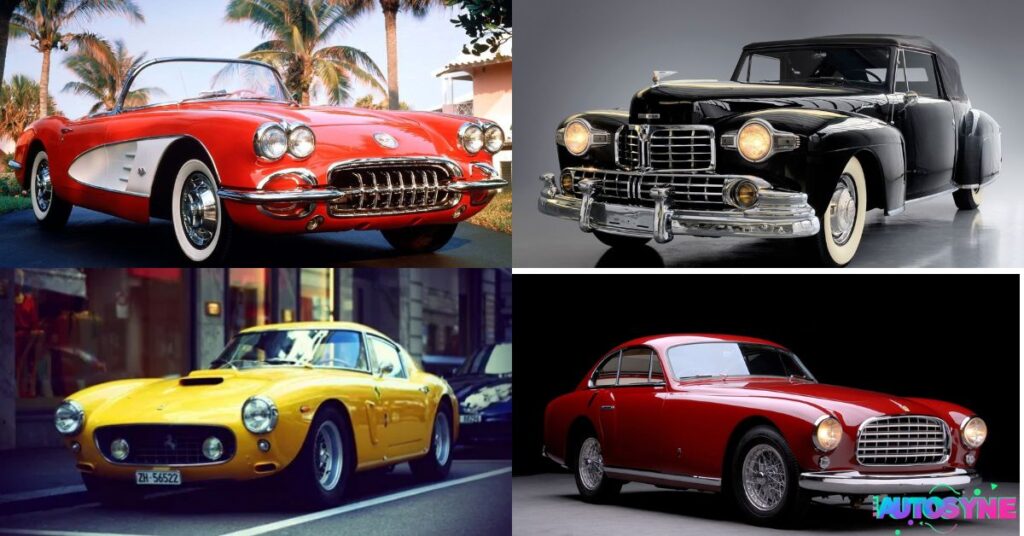
Classic cars are old cars that people like because they are special. They might have a unique style or be famous for some reason. Some classic cars are very old, while others are newer but still special. People who love classic cars often enjoy fixing them up and keeping them in good condition.
Cons of buying a high mileage car
Buying a high-mileage car has its downsides. These cars might have more problems because they’ve been driven a lot. This means you might have to spend more money on repairs and maintenance. It’s hard to know how much longer the car will last before it needs major fixes.
Also, high-mileage cars usually don’t have much warranty left and may not be worth as much when you want to sell them. While they might be cheaper to buy, there are risks involved in owning a car with high mileage.
Harder to secure car finance
It’s harder to get a loan for a high-mileage car. Banks and lenders are cautious about giving money for cars with lots of miles.
This means you might have fewer options for financing, and the ones you find might have higher interest rates or need a bigger down payment. So, buying a high-mileage car could end up costing you more in the long run.
Maintenance costs
Maintenance costs can be higher for cars with lots of miles. As cars get older, they might need more repairs and maintenance to keep them running well. This includes things like fixing brakes, tires, and engine parts.
Older cars might also have problems like rust or leaks that need to be fixed. These costs can add up over time, so it’s important to budget for maintenance if you’re buying a car with high mileage.
New features

Newer cars have cool features like automatic emergency brakes and high beams. They also come with updated infotainment systems and better fuel efficiency. But older cars with high mileage might not have these fancy features, so you’ll have to decide if that’s important to you.
Frequently Asked Questions
Is it safe to buy a high-mileage car?
High mileage doesn’t always mean a car is unsafe. Factors like maintenance history and overall condition play a crucial role in safety.
Will maintenance costs be higher for a high-mileage car?
Yes, maintenance costs for high-mileage cars can be higher due to more frequent repairs and upkeep needed as the car ages.
Can I finance a high-mileage car?
Financing a high-mileage car might be more challenging as lenders may see them as riskier investments. You might need a larger down payment or higher interest rates.
How can I ensure reliability with a high-mileage car?
Look for a high-mileage car with a well-documented maintenance history and consider having it inspected by a trusted mechanic before purchase.
Is it suitable to use a high-mileage car for daily driving?
Whether a high-mileage car is suitable for daily driving depends on your budget and willingness to handle potential repairs. While they can be affordable options, they may require more maintenance over time.
Conclusion
The decision to buy a high-mileage car requires careful consideration of various factors. While these cars can offer cost savings upfront and may still be reliable with proper maintenance, they also come with potential drawbacks such as higher maintenance costs and difficulty securing financing.
Ultimately, whether a high-mileage car is the right choice depends on individual preferences, budget, and willingness to handle potential repairs. By conducting thorough research, inspecting the vehicle, and weighing the pros and cons, buyers can make an informed decision that suits their needs and priorities.
Whether opting for a high-mileage car or a lower-mileage alternative, prioritizing safety, reliability, and affordability is key to enjoying a satisfying and worry-free driving experience.

Thomas is a seasoned automotive writer with five years of expertise. His passion for cars fuels insightful articles on industry trends, technology, and driving experiences.







